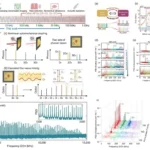Key Points
- Northvolt has consistently failed to meet its weekly cell production goals since September.
- The company cut shifts and suspended production in one Skellefteå facility to optimize quality.
- BMW canceled a €2 billion battery order, while Scania revised its delivery agreement.
- Despite challenges, Northvolt remains critical to Europe’s efforts to reduce dependence on Chinese EV batteries.
Swedish green tech company Northvolt is grappling with production challenges at its flagship battery cell factory in Skellefteå. According to sources, the company has consistently missed weekly production targets since September, raising concerns about its ability to scale up and meet market demand.
Facing financial pressures, Northvolt cut its workforce by 20% and scaled back operations earlier this year. The company also ended its 24/7 production cycle in mid-November, reducing weekday shifts and suspending operations in one of its Skellefteå manufacturing buildings. The company stated that these measures aim to optimize production quality and align with contracted customer deliveries.
Despite efforts, Northvolt’s struggles have had ripple effects. In June, BMW canceled a €2 billion battery order due to delivery delays. While Northvolt primarily supplies batteries to Volkswagen brands Audi and Porsche and truckmaker Scania, it continues to face issues such as machinery faults, inexperienced staff, and production inefficiencies.
Nevertheless, Northvolt has achieved some milestones, tripling its cell manufacturing levels this year and maintaining leadership among European battery makers. Industry experts acknowledge the challenges of scaling up high-quality battery production, with fluctuations common in this sector.
Scania, which revised its delivery agreement with Northvolt earlier this year, reported receiving batteries on schedule. CEO Christian Levin noted that while Northvolt has faced ramp-up difficulties, a collaborative approach helped align expectations. Northvolt remains critical to Europe’s efforts to reduce dependence on Chinese EV batteries. However, its ongoing challenges highlight the complexities of competing in this demanding industry.





